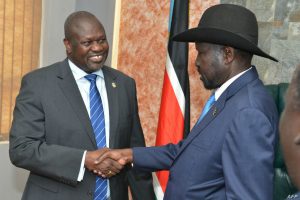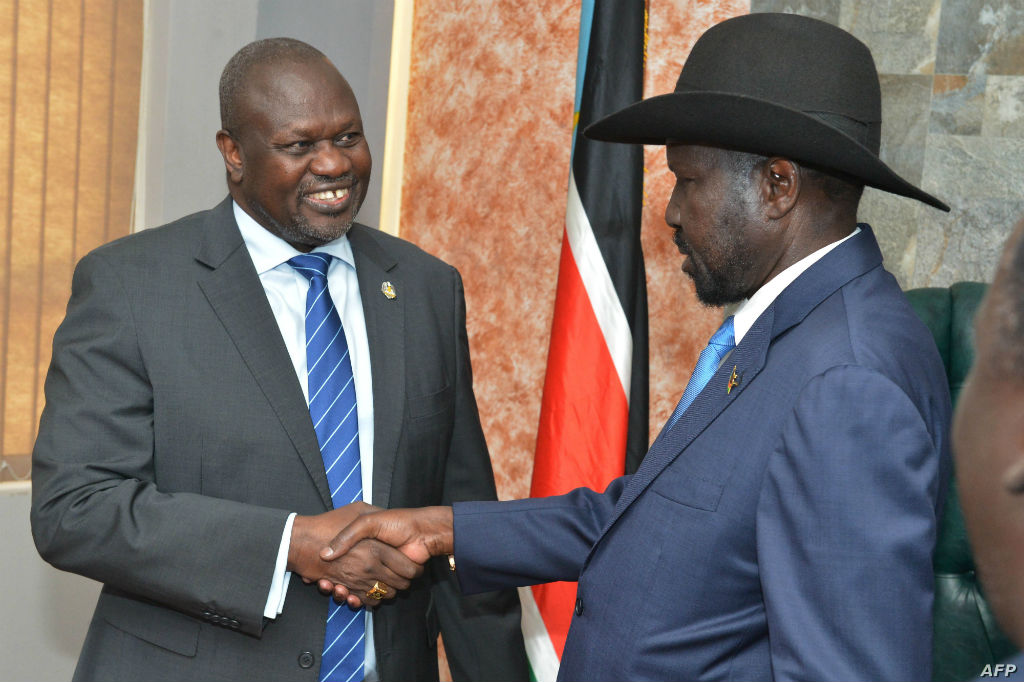
By: Nhial Gatkuoth Chung, Accra, Ghana
March 25, 2020 (SSNA) — The formation of the Revitalised transitional government of national unity on 12th March 2020 is another positive step toward the realisation of permanent tranquility in South Sudan though it was partly celebrated due to the fact that the betrayal attitudes of the South Sudanese leaders still visible in their day-to-day approach.
People of South Sudan have suffered immeasurably for the last six to seven years under various armed groups across the country where brutal crimes were committed by both parties to the conflict.
Many people have been internally displaced, many more abandoned their original homes and crossed South Sudan international borders for safety.
As the new government is in place now, there’re still mixed reactions across the country especially areas hit hard by the conflict, whether this peace will hold this time or not, whether the 2016 scenario will reoccur or not, (given the fact that the security arrangement is completely compromised), whether the parties who signed the revitalised agreement will adhere to its implementation modalities or not?
There’re so many unanswered questions and doubts lingering in the minds of so many South Sudanese in general about this shaky peace. The ball is now in the court of South Sudanese leaders to prove their ability and political will once more for them to take the country to the next level, show political maturity and put the country back to its original state.
What will the revitalised government of national unity achieve/deliver to the South Sudanese for 30 months transitional period with this bloated government that comprises of 35 cabinet members and 550 lawmakers?
Of course, the answer is nothing and nothing will change the lives of the ordinary South Sudanese in their hands, instead, this agreement renews its license to rule with impunity and loot more from the public coffers and stash their loots overseas and the status quo continues.
The resources that’s supposed to be for the development will become a slush fund in the hands of the elites to continue their malicious political scandal at the expense of the poor South Sudanese, and embark on an inglorious mission of bribery to frustrate the implementation of the agreement and by continuing their propensity to corruption spree.
The case in point was the recent money given to the members of parliament as health insurance allowances by the president while the entire country doesn’t have schools, health centres, and clean drinking water and infrastructure.
The training of the unified forces is lagging behind with numerous constraints due to lack of fund, many soldiers were reported to have died in the cantonment areas and some have left the training camps due to lack of food, medicines, clean drinking water, and other basic needs.
If the government channels that money to construct a health Centre in Magwi or Terekeka County, for example, won’t it change the lives of the people in that area? Of course, it can.
The old faces that made it back to the cabinet have nothing to offer to South Sudanese in general, they’ve been in the government for the last fifteen years and nothing has changed, their reappointment and presence in the cabinet is like pouring a bottle of old wine in a new bottle.
This is a clear sign that the agreement will have numerous setbacks in the course of implementation, rampant corruption will still be on track unabated.
South Sudanese were desperately hoping to see new faces in the R-TGONU with new ideas, energy and political programs to uplift and repair the image of South Sudan to a new level of hope, development, and prosperity.
The reform agenda will face uncountable hurdles or will never come to light unless the current leaders bury their hatchets and put the country first.
During the civil war, state of emergency was declared across the country, the declaration gave unlimited powers to the men in uniform to harass, loot, kill and destroy the properties of the civil population.
Atrocities were committed by both parties to the agreement. People were killed along the ethnic lines; women were gang rapped people were burned alive and castrated.
There was a total breakdown of law in the country, rule of gun with impunity was the order of the day from the national security apparatus
The revitalised agreement has embodied some crucial chapters that can change the face of South Sudan if the accord is fully implemented, Chapter five in the revitalised peace agreement talks of transitional justice and accountability, this chapter can serve as a reward to the victims of the SPLM war by promptly establishing the hybrid court to try the perpetrators who committed crimes during the war.
In a nutshell, R-TGONU is doomed to fail like the 2015 ARCSS, the expectations of the people are still in despair otherwise they must show or prove their seriousness in actions.
Other South Sudanese political parties who didn’t sign the revitalised agreement should be engaged and included in the agreement so that a comprehensive and permanent peace is achieved in South Sudan. We can’t have a total peace when there’re still armed groups that aren’t part of the deal.
The Rome initiative should bring all the parties who aren’t part of the revitalised agreement on board so that a genuine peace is attained throughout the country.
It’s time for the government to win back the trust of South Sudanese by delivering the services through well-designed programs. Outline tangible plans for reconstruction, rehabilitation, reconciliation, repatriation, and resettlement of the refugee from neighboring states and IDP’s.
May God bless South Sudan.
The author can be reached at [email protected].

